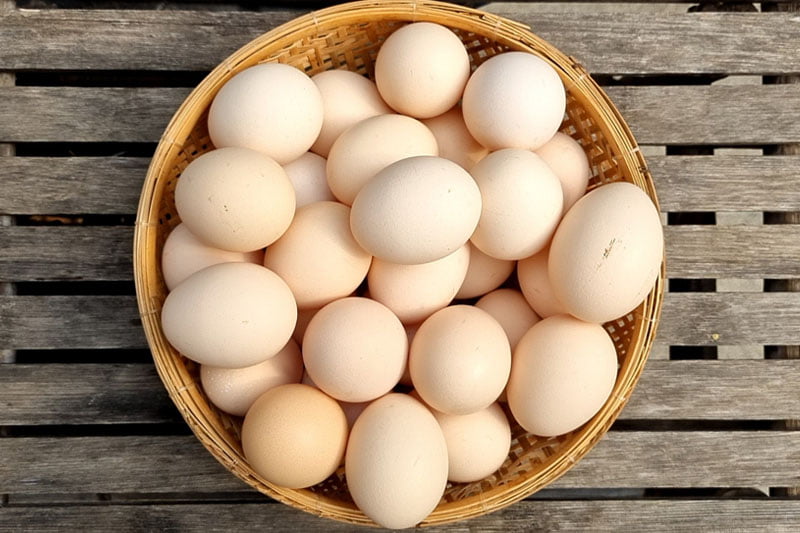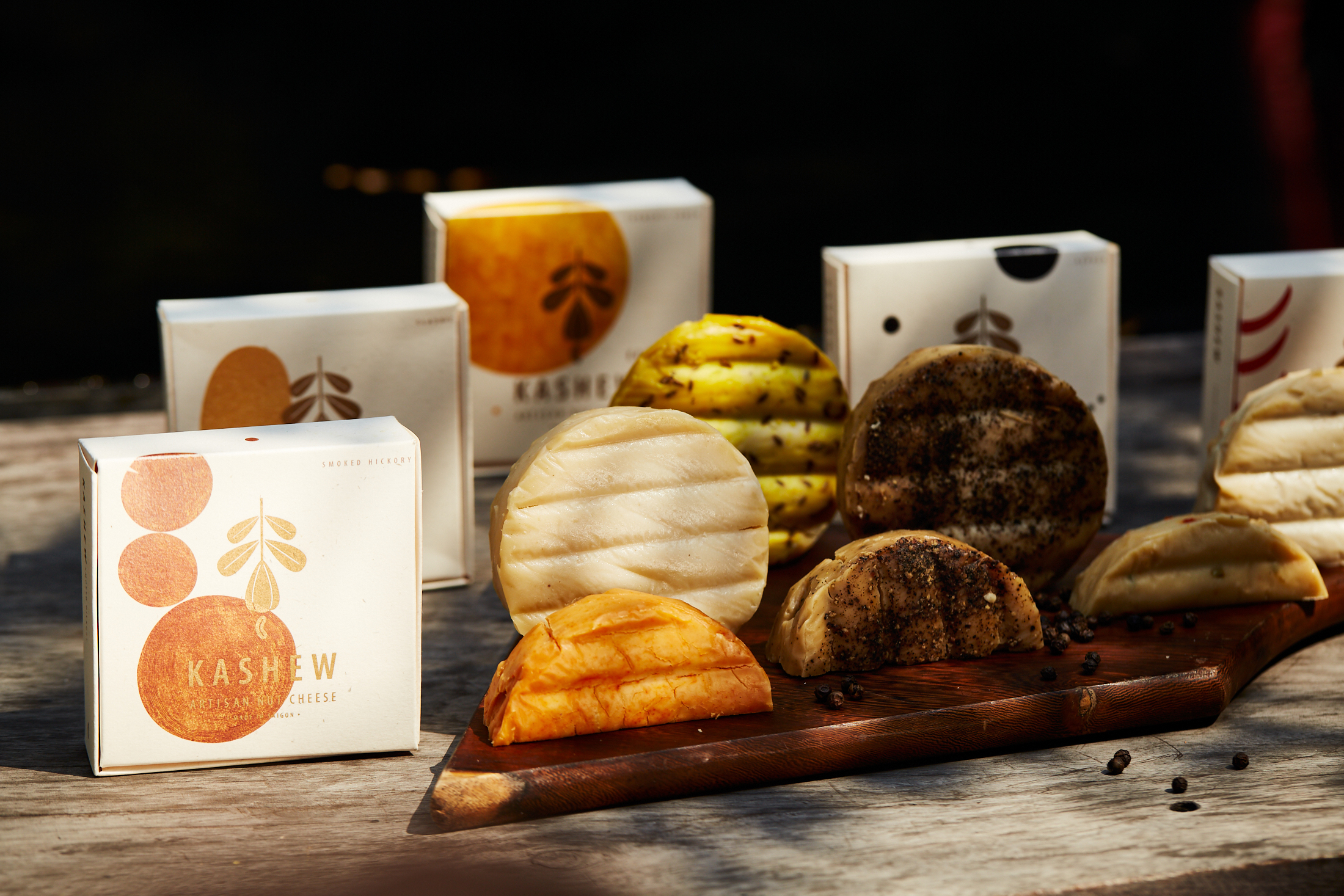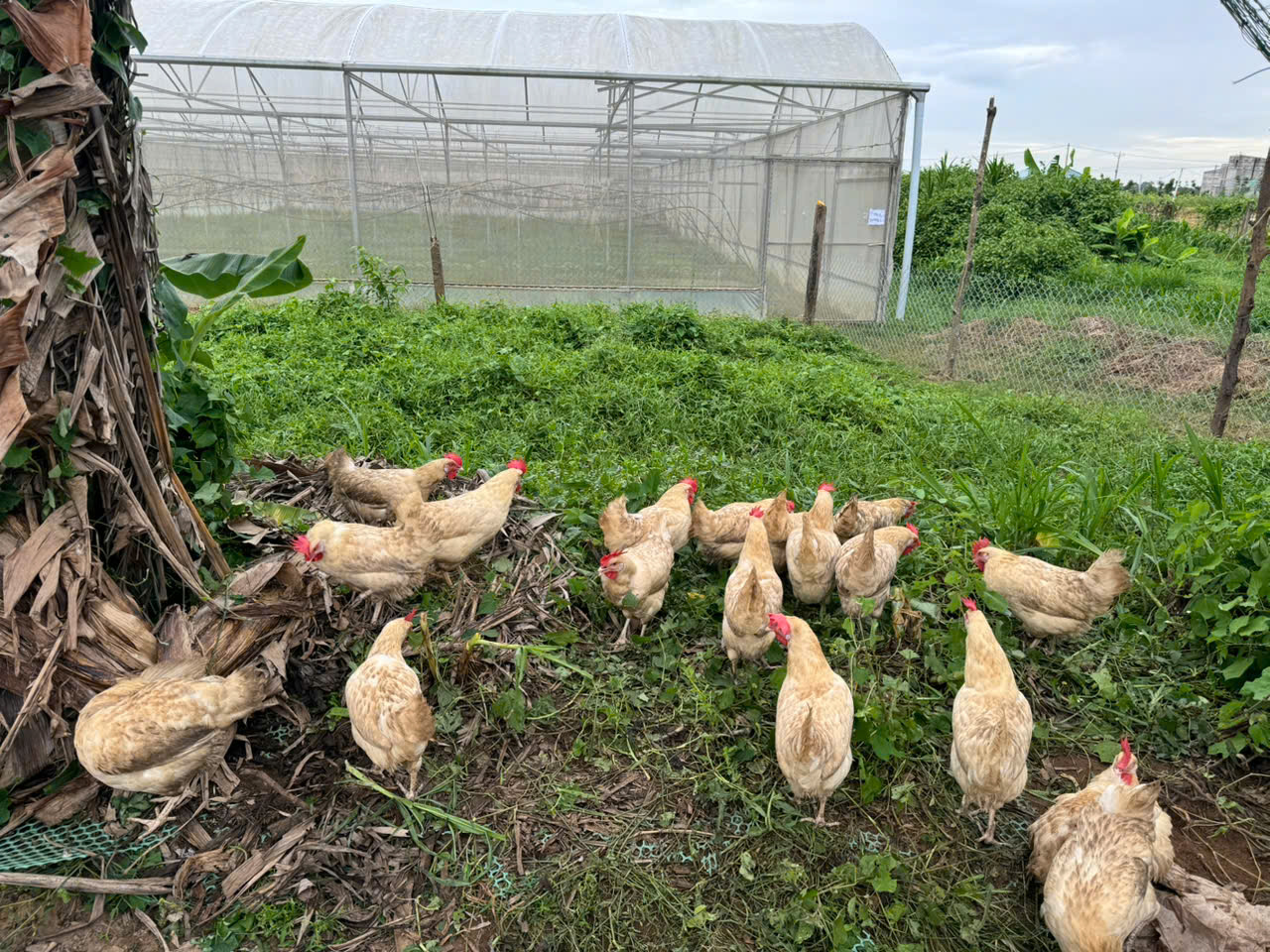Why free-range eggs?
Have you ever found yourself wondering about the quality of eggs that you find at the local market or supermarket? You probably should. Eggs really are not just eggs. There are eggs and then there are free-range, all-natural eggs.
You might already have noticed your choices at the market: Industrial eggs, cage-eggs, local chicken eggs, omega-3 eggs, free-range eggs or organic eggs, maybe even farm eggs. The choice is yours, but first, let’s find out why you should choose all-natural and free-range eggs.
What are free-range eggs?
Free-range eggs are eggs from chickens that are free to roam in nature. They have free access to outdoor areas. In Vietnam, in rural areas, they might have a fence area and be taken in at night as there are many natural predators in nature in the countryside. This is for their own protection.
Being in a forest or a field or where the chickens may roam, they encounter various different food options. They can freely forage on vegetables, fruits, grass, insects and larvae. This results in quite a diverse diet that is not without a great nutritional impact. As a result, free-range eggs contain more omega-3 than industrial eggs.
Free-range eggs are rich in nutrients and contain less cholesterol
Many studies have shown that free-range eggs contain an overall healthier nutritional profile: Lower in saturated fat and cholesterol, and richer in protein.
Indeed, free-range eggs contain nutrients unlike any other: 6g of protein, 70mg of omega-3 fatty acids, high levels of lutein and zeaxanthin, rich in vitamins A, D and E. They are also high in choline, which helps support memory and nerve function.
According to a number of studies, free-range eggs may contain 3-6 times more vitamin D than industrial processed eggs. During this time of COVID, vitamin D is one of the vitamins we really want to pay attention to.
In other good news: the cholesterol content of free-range eggs is only 2/3 of industrial eggs. A standard egg contains an average of 423 mg of cholesterol, while a free-range egg contains an average of 277 mg.
Animal Welfare
Happy hens lay better eggs! Seriously they do. Not only do they taste better they also have more nutrition and we take care of the chicken.
Animal welfare is not a new concept, but a topic that still deserves attention. More and more animal protection organizations are published; producers and consumers are also gradually making positive changes and becoming more aware of animal rights.
 Free-range chickens at our partner farm
Free-range chickens at our partner farm
According to wikipedia: Animal welfare or animal rights is a term that ensures the physical and mental well-being of an animal, treating animals well so that the animal has a good state, avoiding unnecessary suffering whether the animal is a food pet, tool of production, pet, or wild animal in captivity or even slaughter.
This also means a human concern for animal rights or for the ethical treatment of animals. They are measured by attitudes towards the use of animals. There are five criteria to ensure animal welfare:
- No hunger
- No discomfort both physically and mentally
- No pain, injury, disease
- Free from fear and anxiety
- Free expression of instinctive behavior
Chickens need freedom to move. The need for locomotion, instinctive and physiological behaviors can be mentioned as wing flapping, stretching or foraging. Have you ever heard of farmers playing music for their chicken? This is believed to help chickens relax, relax mentally, do not jostle and bite each other to reduce productivity – a common stress phenomenon in chickens when they are kept in cages.
The chickens are sometimes supplemented with crushed corn and rice
Happy hens lay better eggs
They are never fed any antibiotics or growth hormones. For free-range chickens, being exposed to sun, shade and fresh water is the best thing. For medicine, they are given a bit of garlic. This makes the growth and development of chickens completely natural and instinctive to bring out the freshest and most natural eggs.
The chickens are free to move and forage in the garden; eating mainly vegetables, grass, insects and sometimes supplemented with crushed corn, rice and larvae. Free-range chickens eat more than cage chickens as they are burning many more calories during any given day (as they roam around and play with other chickens).
At ByNature, we only work with partners where the visions in this post are lived in real life. Many farmers have come to realize that this is the right way forward. We are thrilled to be part of this journey and ultimately we help put the best possible eggs on your table.
Read more: Free-range eggs ByNature
Email: info@bynature.vn
Website: bynature.vn





